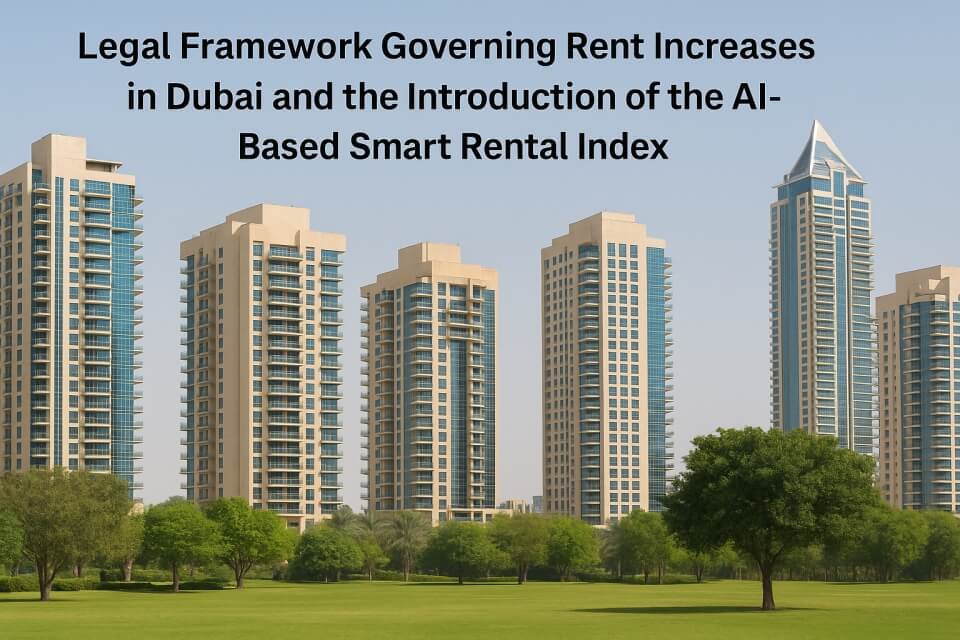Questions & Answers
The landlord insists on increasing the rent more than RERA Index. What can I do?
Hi everyone,
I’m facing an issue with my rental situation and would appreciate any advice.
I purchased a company in July that’s renting a shop space, and the tenancy contract (under the company’s name) is ending on November 22.
The landlord is insisting on a 40% rent increase, even though the RERA Index clearly indicates a 0% increase for this area.
I’ve informed the landlord that this increase isn’t in line with RERA regulations, requested a new contract, and asked him to come by to collect the cheques—but he’s been unresponsive.
To protect our position, I filed an offer and deposit with the rental dispute center, but it was automatically closed because the landlord didn’t respond.
My question is: what should I do next?
Filing a case for renewal will cost 5% of the rent, which is a significant amount right now.
Are there any alternatives to proceed without incurring that cost, or any other steps to ensure the landlord adheres to the regulated rental terms?
Since you have already filed an offer and deposit with the Rental Dispute Center (RDC) and the case was closed automatically due to the landlord’s non-response, you should reaffirm your offer.
According to RERA regulations, when there is a dispute over a rent increase that exceeds the allowable limit, you can submit an offer reflecting the legal rent amount (as per the RERA index) and make a deposit equivalent to the rent as a sign of good faith.
Ensure that you submit this offer and deposit again (if not already done), and keep a record of all your communications with the landlord, including the fact that the landlord has not responded to your requests.
If the landlord remains unresponsive or refuses to acknowledge your requests, you should send a formal letter of demand.
State that you are aware of the RERA index indicating a 0% increase. Reiterate your offer based on the RERA guidelines and request the landlord to provide the new contract reflecting the legal rent.
Specify a deadline for the landlord to respond to avoid further legal action. While it’s true that filing a case at the Rental Dispute Center (RDC) can cost you a percentage of the rent (5% of the annual rent, in most cases), this is often necessary to resolve disputes that can’t be settled informally (mediation session).
For further assistance, kindly share your Whatsapp number.

Dear questioner
We need to file the case for an arbitrary rental increase, otherwise, they can evict you on terms of non-payment of rent by the time we require to file the case and need to challenge from the beginning or we need to negotiate with the landlord for a fair deal.
It will be advisable to file a case. If you need our assistance in your matter, kindly share your Whatsapp number.
Dear Questioner,
Thanks for your inquiry.
According to UAE law, landlords are required to adhere to the RERA index for rental increases. If your landlord is not following this regulation, you have the right to file a case with the rental dispute center. However, as you mentioned, this may incur a cost of 5% of the rent.
If you do not want to incur this cost, you can try negotiating with your landlord and show them the RERA index to support your argument.
If they still refuse to comply, you can file a complaint with the Real Estate Regulatory Agency (RERA) and they will investigate the matter.
Another option is to seek legal advice from a lawyer who specializes in real estate law. We can advise you on the best course of action and may be able to negotiate with the landlord on your behalf.
It is important to note that if the landlord continues to refuse to follow the RERA index, you have the right to terminate the tenancy contract and find a new rental property.
However, this should be a last resort and you should consult with us before taking any action.
In summary, you have the right to challenge the landlord's rent increase and seek legal recourse if necessary.
It is important to document all communication with the landlord and keep records of the RERA index to support your case.
Greetings
Al Fahad Legal Consulting
Greetings.
Can you send the rental contract on WhatsApp so that we can provide you with more accurate information?
Note that the rental increase must be according to the RERA index.
As long as you have offered the rent, you are safe, you can submit a request to renew the contract and deposit the rent after that.
We are honored to provide you with legal support. For further inquiries about your topic, you can come to our office or contact us on WhatsApp.

Thank you for reaching out.
Your decision to submit an offer and deposit with the rental dispute center was indeed a sound approach, as it demonstrates your commitment to the legally regulated terms, regardless of the landlord’s response.
In accordance with UAE tenancy laws, particularly under Dubai’s RERA regulations, a failure by the landlord to respond to the formal offer generally implies consent to the terms you have proposed effectively renewing the contract under the same conditions as the previous term.
To maintain your legal standing, it would be advisable to deposit the rental payments as per the due dates for each cheque, in cash, with the rental dispute center.
This step reinforces that you have met all rental obligations per RERA guidelines, thereby legally safeguarding your position.
Should the landlord insist on a rent increase, he must take legal action to substantiate his claim, as the burden of proof rests on him to justify any such adjustment before a judge.
If you want to get Ejari for any reason, you can also file a lawsuit to demand that he delivers Ejari to you, obligating him to pay the fees and expenses, noting that the court fees in Dubai are 3.5% of the contract value, and are refundable in the event of winning the case.
Let me know if you’d like to proceed with any further action or if there’s any additional assistance I can provide in navigating this matter.
The landlord's request for a 40% increase is not in line with RERA regulations. It's important to take a proactive approach to protect your interests.
Rather than filing a rental case, it's better to have a negotiation with the landlord or else you can wait until he files the case.
Once you get a judgment in your favor, you will save the court fee.
If you need further clarification regarding the procedures, kindly share your WhatsApp number.

The only solution is to pay the monthly rent to the landlord or submit checks and wait for him to file a lawsuit against you, and at that time, his case will, of course, be rejected.
To obtain free legal advice that includes all the details, contact us.
Thank you for reaching out regarding your rental situation. I understand the challenges you're facing with the proposed rent increase and the landlord's lack of response.
Understanding the RERA Rental Index
The Real Estate Regulatory Agency (RERA) in Dubai provides a rental index that outlines permissible rent increases based on current market rates. If the index indicates a 0% increase for your area, the landlord is generally not entitled to impose a higher rent.
Offer and Deposit Procedure
You've taken a prudent step by filing an 'Offer and Deposit' with the Rental Dispute Center (RDC). This process allows tenants to deposit the rent amount as per the previous contract terms when the landlord is unresponsive or demands an unjustified increase. However, if the landlord does not respond, the case may be closed automatically.
Next Steps
Direct Communication: Attempt to reach the landlord through formal channels, such as registered mail or official email, reiterating your willingness to renew the lease under the existing terms as per the RERA index.
Legal Action: If the landlord remains unresponsive or insists on the unjustified increase, filing a case with the RDC is a viable option.
While there is a fee associated with this process—typically 3.5% of the annual rent, with a minimum of AED 500 and a maximum of AED 20,000
Property Finer
- it provides a legal avenue to enforce your rights.
Alternative Dispute Resolution: Consider mediation services offered by the RDC, which aim to resolve disputes amicably without the need for formal litigation.
Considerations
Documentation: Ensure all communications with the landlord are documented. This includes emails, letters, and records of any attempts to contact them.
Legal Counsel: Consulting with a legal professional can provide personalized advice tailored to your situation and help navigate the complexities of rental laws in Dubai.
I hope this information assists you in making an informed decision.
If you require further assistance or wish to discuss this matter in detail, please feel free to contact me via WhatsApp or phone at.
Best regards,
Suhail Rana









